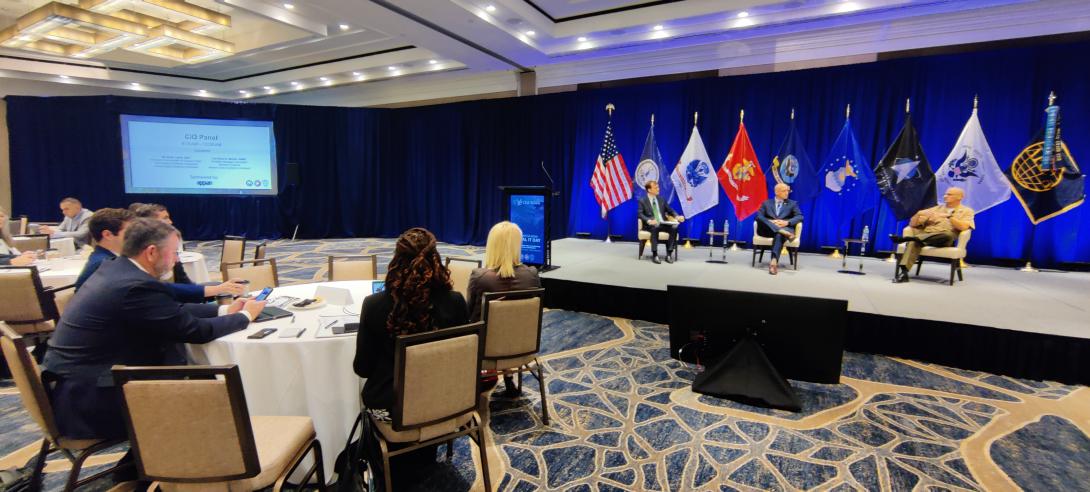Cloud Computing Might Be an Advantage
China, Xi Jinping, Taiwan, the Indo-Pacific, the rise of an Asian power and concern about adversaries’ capabilities were the terms most used among speakers and participants addressing the future of the U.S. Navy at AFCEA’s Northern Virginia Chapter Naval IT Day.
The chapter hosted Secretary of the Navy Carlos Del Toro as the event's first keynote on Tuesday.
The secretary's words centered on the Taiwan Strait, Navy modernization and the diminished interest among younger generations to join the Navy. He spoke to a room full of business leaders in the defense technology field.
But one thing was at the top of everybody's mind.
“Be very protective of your data in your own companies, do everything you can, do everything you can afford to do, to protect that data, both electronically, but also physically; we are really challenged by what China has done,” Del Toro said, referencing an ongoing FBI investigation of alleged industrial spies stealing defense technologies for Beijing.
“Pay close attention to situations that aren’t normal situations, during your day,” Del Toro added, stressing the need to safeguard competitive advantages.
While the U.S. dominates in quality, the tables are turned in quantity.
“I really wish last year, with the introduction of the National Infrastructure Bill, that shipyards would have been included,” Del Toro lamented. He explained that technology adoption in the four available facilities the Navy has would increase efficiency and added, “By the way, China has a huge advantage, they’ve got 13 shipyards, unfortunately, they have labor at record low prices and we will never be able to compete.”
Maintaining a technology edge is centered around the concept of making a destabilizing action by China against Taiwan a costly adventure that would deter Beijing from such move, according to Del Toro.
At the other end of the spectrum was the next panel, which discussed technology adoption.
“Nine times out of 10, some of the maintenance issues that we're hearing about are that tactually someone didn't get trained and they're actually breaking the equipment because they're not appropriately trained,” said Col. Ross Monta, portfolio manager, Command Element Systems, Marine Corps Systems Command.
Monta explained how technology adoption for use in combat requires intuitive design and quality instructions for those who employ innovations on the field. Still, he insisted that training should always include cases where these novelties are unavailable or not working as designed.

It’s all about cloud computing.
“We're trying to make the data at our fingertips constantly available,” said Brian Laird, assistant commander for Supply Chain Technology and Systems Integration, Naval Supply Systems Command.
Laird explained how a modern scenario, like the one in Ukraine, could see disruptions that would deny digital capabilities to service members carrying missions out as well as to technicians back in the shipyard. Therefore, real-time data should be adopted, but with a capability to fall back on other sources and methods of information as well, as this was one of the key lessons for him from Ukraine.
“You have got to expect the unexpected, you’ve got to be ready to fight without anything other than, maybe, voice communication at best,” Monta said.
And while operations at the edge of the cloud should have maximum flexibility to prevent breakdowns, Del Toro was clear about which would be the way forward.
“It’s all about cloud computing,” he said.
“The unmanned exercise we had in the Persian Gulf not too long ago, when Iranians picked up an unmanned vehicle, I didn’t lose sleep over it; we got it back, which was kind of nice … but the fact is we could afford to lose the device, all they got was a $25 camera, all the information was in the cloud, we gave nothing away,” Del Toro explained and stressed the resiliency afforded by decentralized computing.





Comments